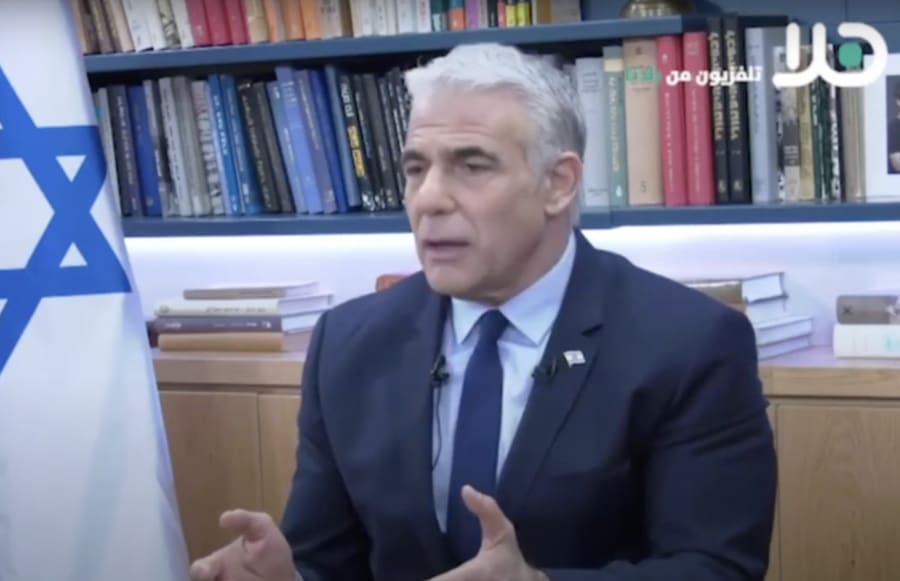Israeli Prime Minister Lapid tells Arab media he will amend Nation-State law if re-elected
While campaigning among Arabs, Lapid says he will add "civil equality" to law, vows to maintain "status quo" on Temple Mount

Israeli Prime Minister Yair Lapid told Arabic news outlets on Tuesday that the nation's 2018 “Basic Law,” which declares Israel the nation-state of the Jewish people, will be amended if Lapid is re-elected in the Nov. 1 election.
“I oppose the ‘Nation-State’ law, and I think it should be changed and a section of civil equality added to it,” he said. “There were talks about this, that a section be added to the Basic Law: human dignity and freedom.”
Lapid also said that if re-elected he would not change the status quo on the Temple Mount, which grants Muslims the freedom to pray at the mosque there but not for Jews and Christians visiting the site.
“We will take care of the freedom of worship of Muslims at Al Aqsa, who can go up to pray. We allow Jewish visitors to ascend the Mount, but not to pray,” Lapid said. “They [Jews] ascend and the visits are under supervision to make sure that the status quo is not violated.”
Lapid, who became prime minister on July 1, said that he opposed the Nation-State law since its inception.
“In the Knesset plenum I said, ‘The State will not humiliate its citizens.’ The Nation-State law as it is written today is an insult to non-Jewish Israeli citizens and must be amended,” he said.
Two areas of the law have been called discriminatory to minorities in Israel, including making Hebrew the official language of the State of Israel and granting Jews the right to exercise self-determination – although neither of these points are unique to Israel.
France's constitution calls French their official language while Spain's constitution specifies that national sovereignty belongs to the Spanish people.
Israel's law, however, was widely condemned internationally and also by Jewish groups when passed by the Knesset in the summer of 2018.
At the time, the European Union expressed concern that the law would “complicate or prevent” the two-state solution, whereas the Organization of Islamic Cooperation called the law “racist, void and illegitimate.” The Anti-Defamation League said at the time that elements in the law “could undermine Israel’s cherished democratic character.”
Last year, the High Court of Israel upheld the Basic Law, arguing that it was not for the court to order the law to be canceled. One dissenting judge argued that there were parts of the law that challenge Israel’s democratic nature and harm the principle of equality by ignoring Arab and Druze citizens.
The law does provide that “Arabic has a special status in the State,” and prescribes the regulated use of Arabic in state institutions, adding that “Nothing in this article shall compromise the status given to the Arabic language in practice.”
In May, Dr. Amir Khnifess, head of the Ronson Institute for Israeli-Druze studies, called for the Basic Law to be changed, and for the 1947 Declaration of Independence to be established as a Basic Law.
“It is time to right the terrible injustice that the nation-state law causes the Druze, who daily risk their lives for the defense of the homeland,” said Khnifess. “It is time to realize that hundreds of members of the community have given their lives for the state and thousands, such as Kheir al-Din [an Israeli Druze officer killed in a 2018 Gaza raid], have protected its security since the establishment of the state.”
“It is time to translate the great slogans ‘blood covenant’ into a true covenant of life and to give equal status to the [Druze] community, which is a symbol and role model for a real connection with the Jewish people in Israel,” he said.

The All Israel News Staff is a team of journalists in Israel.














